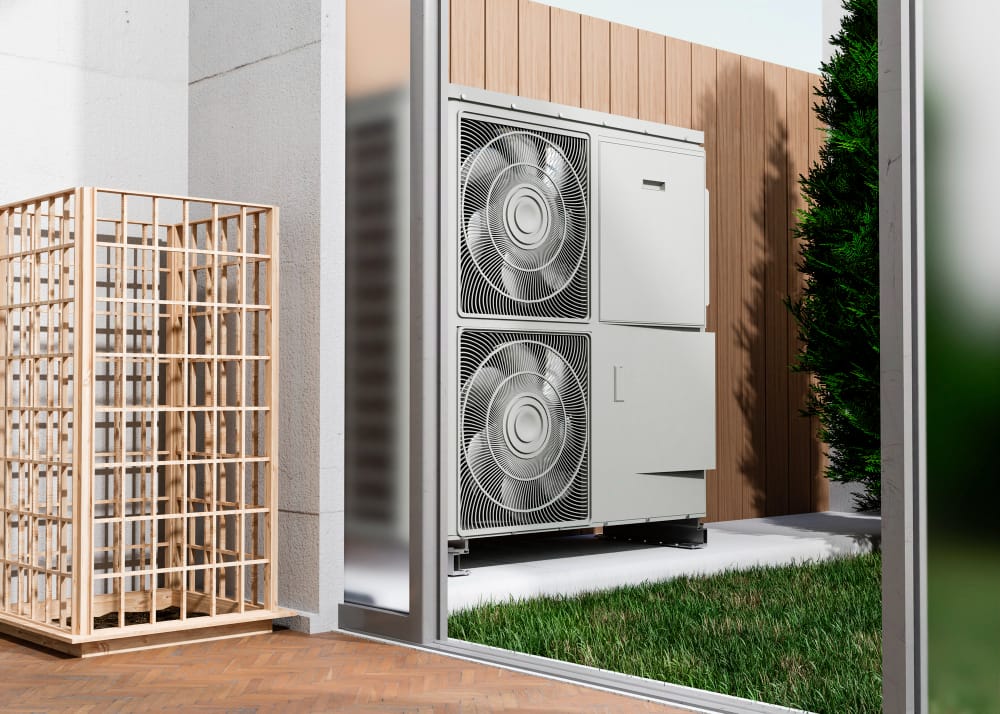In the realm of heating and cooling solutions, the heat pump is making a notable comeback. While it may seem like a technology from the past, it’s now experiencing a resurgence due to its energy efficiency, sustainability, and versatile applications. In this article, we’ll explore why heat pumps are regaining popularity, how they work, their installation potential, and the benefits they offer to homeowners.
The Renaissance of Heat Pumps
Heat pumps are not a new concept; they’ve been in use for decades. However, recent advancements in technology, growing environmental concerns, and the pursuit of energy-efficient solutions have brought heat pumps back into the spotlight.
One of the key factors driving this resurgence is the emphasis on reducing greenhouse gas emissions and transitioning to cleaner energy sources. Heat pumps align perfectly with these goals, as they are highly energy-efficient and use electricity to transfer heat rather than generating it through combustion, which produces fewer emissions.
How Do Heat Pumps Work?
At their core, heat pumps are devices that move heat from one location to another. They work on the principle of extracting heat from a source, such as the air, ground, or water, and transferring it to another location. There are three primary types of heat pumps:
- Air Source Heat Pumps (ASHP): These extract heat from the outdoor air and can both heat and cool indoor spaces. ASHPs are particularly suitable for regions with moderate climates. GTA is considered to be moderate.
- Ground Source Heat Pumps (GSHP): GSHPs utilize the stable temperature of the earth’s surface to provide heating and cooling. They are highly efficient but require more extensive installation.
- Water Source Heat Pumps (WSHP): WSHPs use a water source, such as a lake or river, for heat exchange. They are often found in commercial buildings but can be used in residential settings as well.
Is Every House Suitable for a Heat Pump?
While heat pumps are a versatile heating and cooling solution, not every house may be suitable for their installation. Factors such as climate, available space for outdoor units or ground loops, and the existing heating and cooling infrastructure can impact the feasibility of installing a heat pump.
However, many homes can benefit from heat pumps, especially those in regions with moderate climates. It’s essential to consult with a qualified HVAC professional to assess your home’s suitability and determine the most appropriate type of heat pump for your needs.
The Benefits of Heat Pumps for Homeowners
- Energy Efficiency: Heat pumps are incredibly energy-efficient, as they transfer heat instead of generating it. This can lead to significant energy savings and lower utility bills.
- Environmental Friendliness: Heat pumps produce fewer greenhouse gas emissions compared to traditional heating systems, making them a greener choice for environmentally conscious homeowners.
- Year-Round Comfort: Heat pumps can both heat and cool your home, providing year-round comfort with a single system.
- Longevity: Well-maintained heat pumps can have a longer lifespan compared to some traditional heating systems.
- Cost Savings: While the initial installation cost may be higher, the energy savings and potential rebates or incentives can offset the investment over time.
In conclusion, heat pumps are making a resurgence as a sustainable, energy-efficient, and environmentally friendly heating and cooling solution. While not every house may be suitable for heat pump installation, they offer significant benefits to many homeowners. If you’re considering upgrading your home’s heating and cooling system, it’s worth exploring the potential of a heat pump and consulting with HVAC professionals to assess your options.




